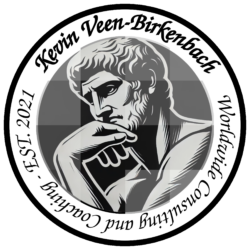A long time ago, when I was a junior Scrum Master, my Chief Agile Coach posed a thought-provoking question:
“If you had a limited budget, would you hire a Scrum Master or a Software Engineer?”
At the time, I replied, “A Software Engineer, because they produce measurable output.”
Now, years later, I reflect on that conversation with a deeper understanding. Since then, I’ve had the privilege of working alongside exceptional Agile Coaches, Scrum Masters, and Product Owners. Yet, let’s be honest:
The majority of Scrum Masters and Agile Coaches lack a clear understanding of the how and why behind their roles. Many find themselves stuck in these positions, not out of passion or conviction, but because they see no alternatives. Instead of pursuing what they believe is right, they focus on maintaining their roles, often to the detriment of their teams and organizations.
The market is saturated with so-called Scrum Masters and Agile Coaches. For every open position, there are often over 200 applicants. Since these roles are unregulated, anyone can claim the title. Unfortunately, this influx of underqualified individuals has created challenges for the Agile community.
The Problem with Unqualified Agile Practitioners
Agile practitioners are perceived as experts, wielding authority. However, when they lack the necessary experience or knowledge, they themselves become the biggest impediments. This issue is compounded when they fail to listen to those they aim to serve, addressing superficial concerns rather than solving real problems. Instead of driving transformation, they retreat into an “Agile kindergarten,” disconnected from reality.
Moreover, the oversupply of candidates drives salaries down, making these roles less attractive to true experts. As a result, the market loses talented professionals who could excel in these positions, creating a vicious cycle.
What Makes a Great Agile Expert?
A true Agile expert must navigate a complex and diverse set of responsibilities, including but not limited to:
- Team and Dependency Mapping
Utilizing frameworks like Team Topologies to visualize and optimize team structures. - Implementing the Right Workflows
Choosing and establishing methodologies such as Scrum or Kanban based on team needs. - Scaling Agile
Adopting frameworks like Nexus, Spotify, Scrum@Scale, or SAFe to scale Agile practices effectively. - Ensuring Transparency
Leveraging tools such as Azure DevOps, Jira, and Confluence to provide visibility into workflows. - Metrics and Retrospectives
Establishing metrics and cascading retrospectives to identify and address impediments. - Teaching Best Practices
Guiding teams on concepts like Definition of Done (DoD), Definition of Ready (DoR), OKRs, and Acceptance Criteria (AC). - Driving DevOps Adoption
Helping developers embrace DevOps practices, if necessary. - Facilitating Vision and Strategy
Supporting the creation of visions, missions, and strategies at both the organizational and team levels. - Effort and Value Estimation
Introducing estimation techniques like T-shirt sizes or story points, and prioritization methods like WSJF or Cost of Delay. - Conflict Resolution and Coaching
Combining skills in mediation and coaching to empower individuals, resolve conflicts, and harmonize Agile methods with existing structures.
This list only scratches the surface of what a skilled Agile practitioner must handle. Organizations seeking to hire an Agile Coach should ask candidates to explain these methodologies. Doing so can reveal whether they possess the expertise needed for the role.
Reflecting on the Industry Today
There was a time when companies hired almost anyone with a self-declared title of Scrum Master or Agile Coach. That window gave me the chance to enter this profession. However, times have changed, and so has my perspective.
If my Chief Agile Coach asked me the same question today, I’d answer differently:
“I would hire a qualified Scrum Master—someone with both experience and a strong theoretical foundation. This is a critical role, and you can’t entrust it to just anyone with a certification.”
Agility works. It offers practical solutions to structural challenges that companies face. While traditional waterfall project management isn’t a viable alternative, the challenge lies in finding the right people to implement Agile effectively. Companies must embrace agility to adapt and compete, but doing so successfully requires truly qualified Agile Coaches and Scrum Masters.


Leave a Reply